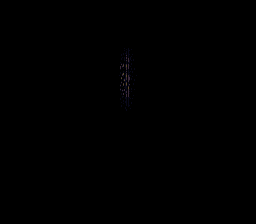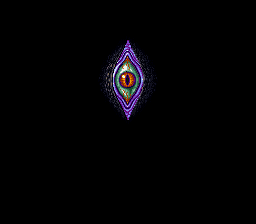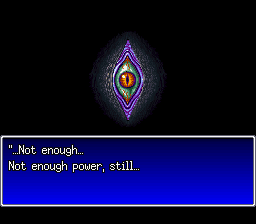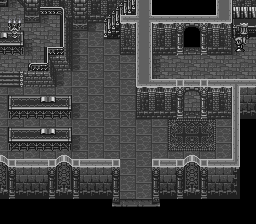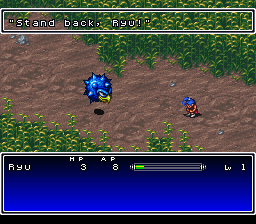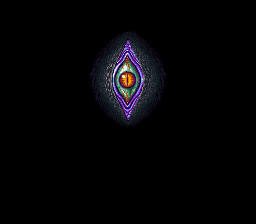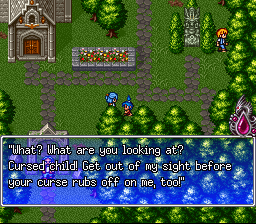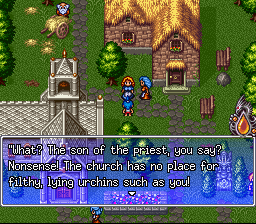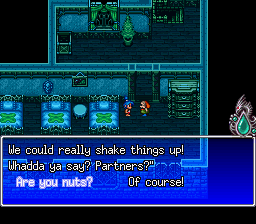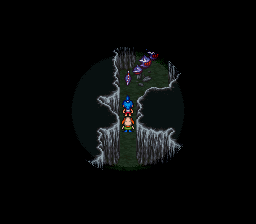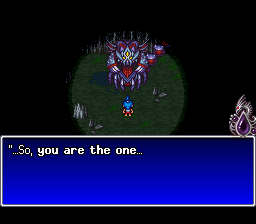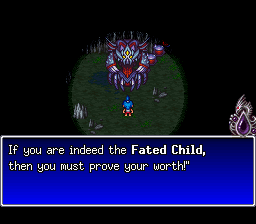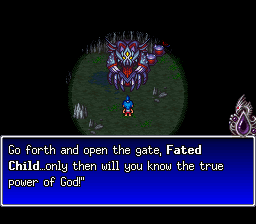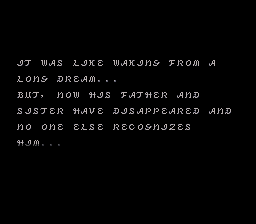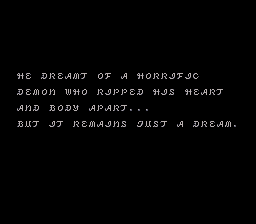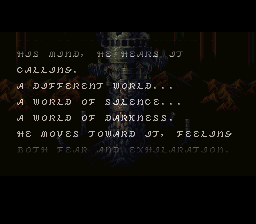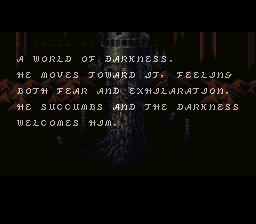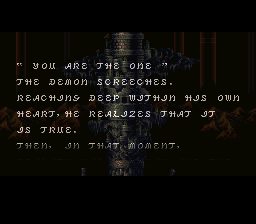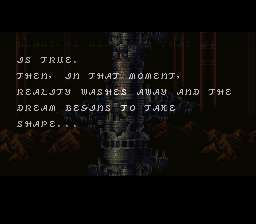Last updated on March 3, 2013
It’s always amazing the thing that’ll scare you when you’re younger.
To set the scene: it is 1996. I just got Breath of Fire II and put it into my SNES, eager for a new RPG adventure. Something light hearted, something interesting, but definitely NOT something like what I was about to witness. Imagine a sheltered life in a Christian environment, where God is good all the time, where things are just hunky-dory, and where nothing bad could possibly happen to me at all.
Now, cue music.
AUGH! WHAT IS THAT! DEMON EYE! I AM SO FRIGHTENED RIGHT NOW!
And for further effect:
And then the demon eye says:
……, I don’t have enough strength ……, Give yourself to God.
Pray to God! Praise God! You must become God’s strength ……
Or, as the retranslated version says:
Hear my words mortals…Offer your souls unto God…Offer Him your praise, your prayers, your worship and devotion…You must become the strength of God!
What the heck?
If you were eight or nine years old and raised in a Christian household, I’m going to guess that your first associations, in terms of imagery, about God are not going to be a giant demonic eyeball. It’s not like my parents knew this would be in the game either; the box looked aesthetically pleasing, so I got it as a Christmas present. So to be treated to the horrific demon eye is scary.
I think it has that effect on me precisely because it’s confusing. Not only is the music ominous, but the player is given absolutely zero context to make sense of what the eyeball (or whatever entity the eyeball is, anyway) means when it talks about “God”, especially God with a capital G. Especially if you have a Christian background, what does a young kind make of this?
Well, he runs away from the television and hides behind a couch.
Barring my childish fear, I think the game goes even further than this introduction. The game begins with you finding where your sister is in a small provincial town. The screen takes a black and white hue, reminding one of days long gone.
Your father and local priest (of what religion we’re not told), Ganer, tells you to go and find her, but it’s not a matter of any urgency; she’s done this many times before. So, you go around town, talking to people, and finding that everyone knows your name (kind of like Cheers, on that note). As you go behind the town to search for your sister, a monster attacks! Don’t worry, though; your father saves you, even though your combat abilities couldn’t even dent the thing.
So, you find your sister, and she believes she can talk to her mother by sleeping under a dragon’s head, a dormant/sleeping/dead dragon that, along with your father, saved the town from destruction. For whatever reason, the player follows her advice and takes a catnap, only to happen upon this:
I think you might be beginning to see where this takes a turn for the worst.
Once you come back into town, everyone acts as if they’ve never seen you before. Further, they DON’T LIKE YOU VERY MUCH.
The Dragon’s Tear in the upper right hand corner of the text box tells you, by color, how the person feels about you. Purple means absolute hatred.
What happened? Why does nobody remember me, and worst yet, hate me? And where is my dad? Apparently, not here.
Your father has been replaced by Father Halk, apparently a well-meaning priest who sees you as an orphan who need the help of “Lord Eva”, the God of the Church. Thus are you taken in, even though you are still confused, frightened, and uncertain what is even going on.
Everything you know is a lie.
When you go to sleep at the church, you meet Bosch. Bosch, the dog/man, portrays himself as an orphan, apparently to rob churches in the night. However, he decides to take you on his little adventure as well, and both of you run out of the town with Bosch’s stolen goods (just a candle!)
However, it begins to rain. Quickly, you duck into a cave to find this:
Bosch, in his infinite wisdom, tells you to follow it. At this point, no real person would want to do any of these things, but the game literally forces you onto this path if you try to deviate. The forces of fate force you into following the tail of…something…in complete darkness, with only a candle to light your way. Eventually we come to a clearing…
And OH MY GOD MONSTER. AND WHY IS IT TALKING TO ME?
So Baroboi, or Barubary for you purists, proceeds to smack you down for no particular reason that a six year old (in the game, anyway) or a nine year old could ever even fathom
Why am I the fated child? Who is God? Is God good, or bad? Certainly, God doesn’t creature giant monsters that attack me! So the screen fades to black, and text scrolls upwards.
And this is a game for kids, apparently? Rated K+A, back then the E for Everyone, six and up. This seems like appropriate material for a child, don’t you think? Give children the feeling of absolute terror, comfort alternating with confusion and total nightmare with the one conclusion:
You are not safe. No one likes you or knows who you are. You are alone. And nightmares will haunt your dreams, of being ripped apart and murdered by monsters in your sleep who sputter nonsense about you being the “chosen one” for some unknown dark purpose. To resurrect “God”? Perhaps. But what does any of this mean to a young kid, other than fear?
That’s pretty heady stuff for a supposed kid’s game with bright and pretty colors. And for a little Christian kid, it’s not a pleasant experience at all. It shocked and disturbed me: After that, it mostly devolves into the mystery regarding what all this childhood trauma actually means, but I find the opening of Breath of Fire II to be quite intense and memorable. This is prior to the advent of big budget cutscenes and music, but it sets the tone and mystery convincingly and effectively. I suppose that’s why I remember it after all these years as still pretty scary.
And a bit of theological impetus, to find out who God really is.

